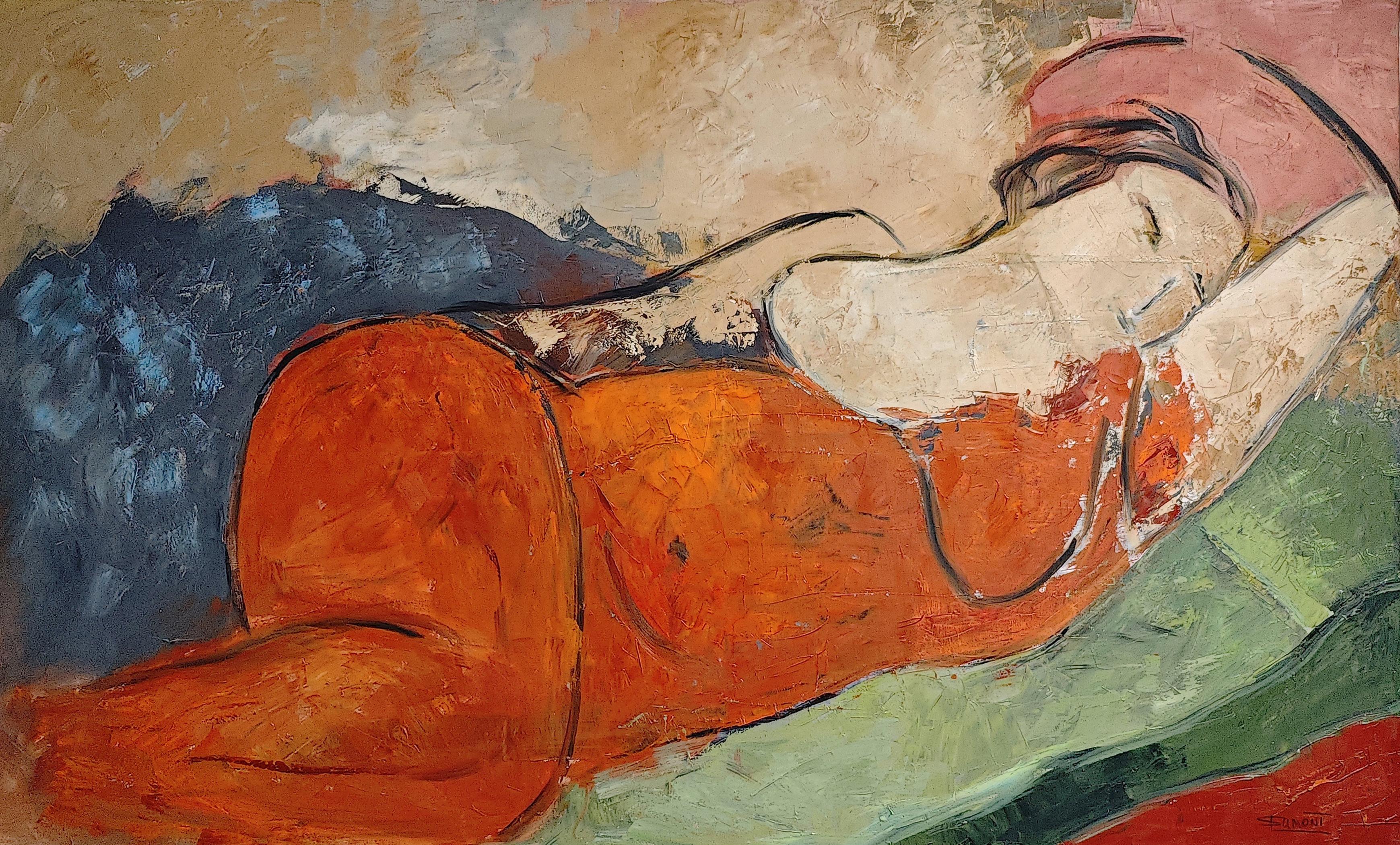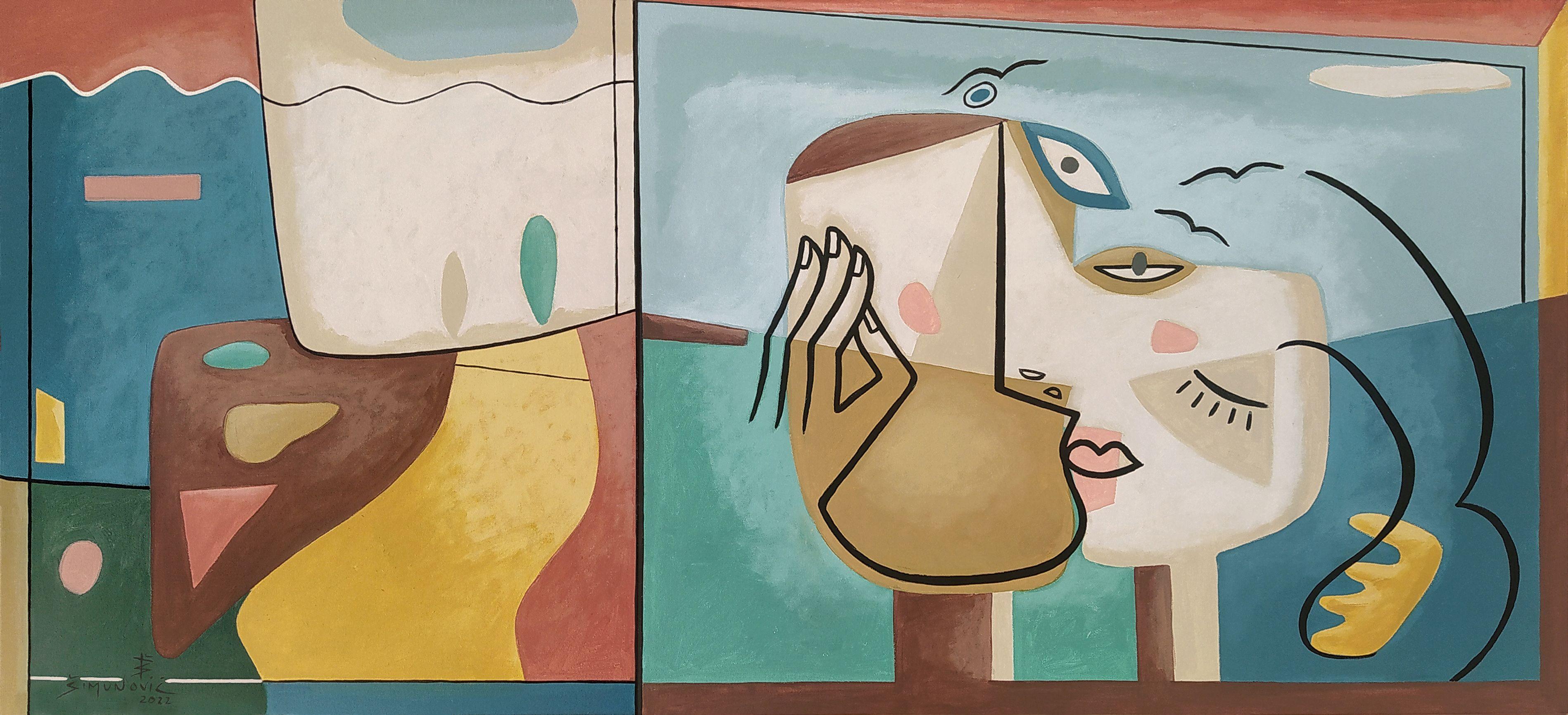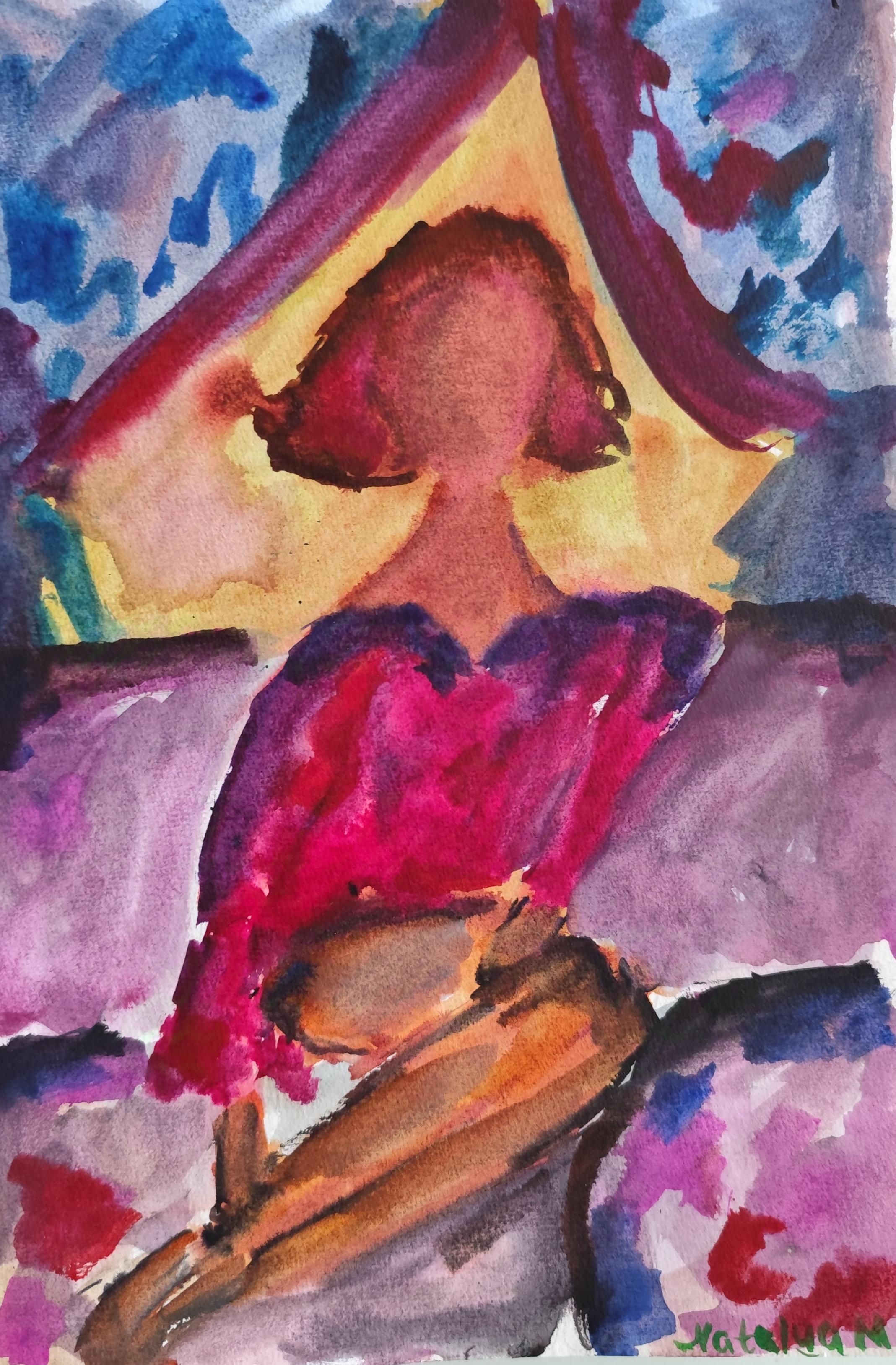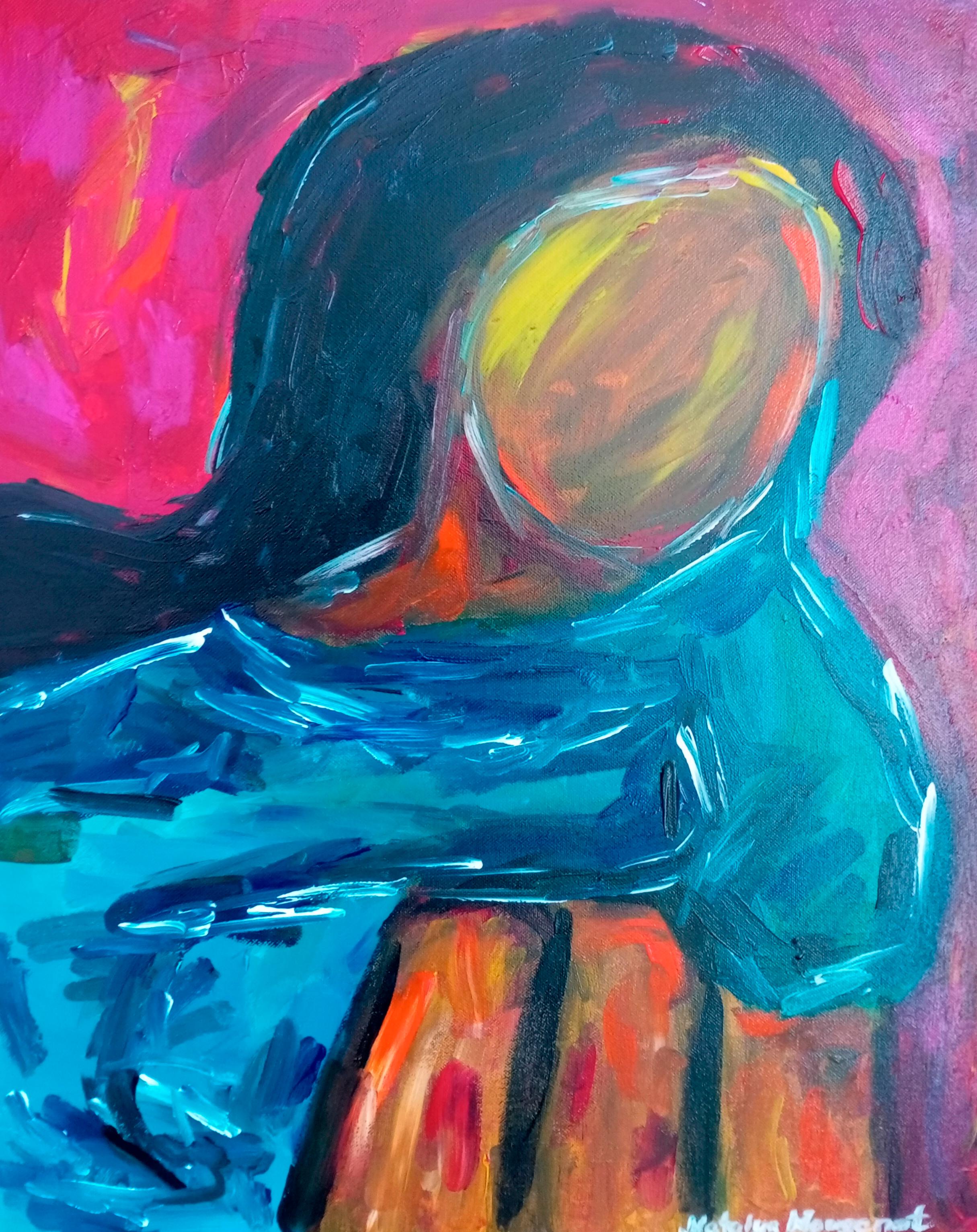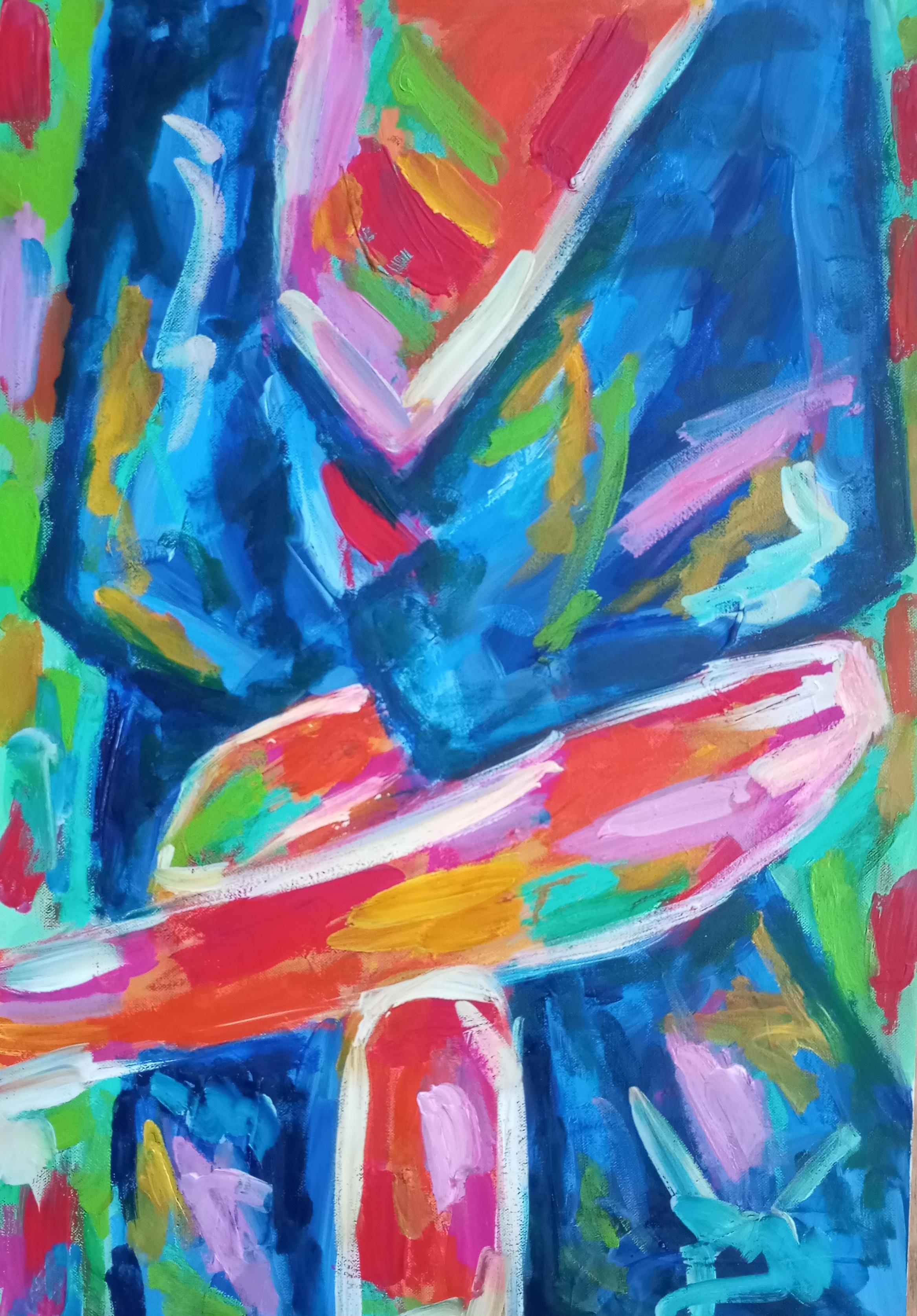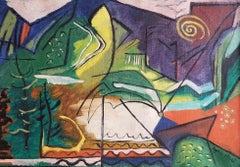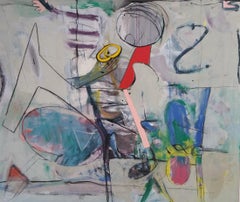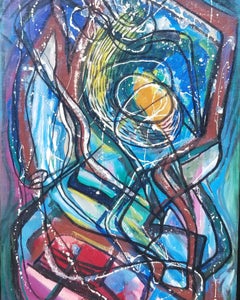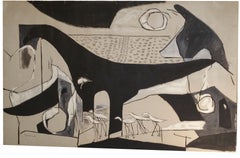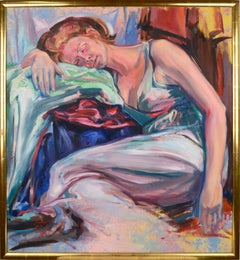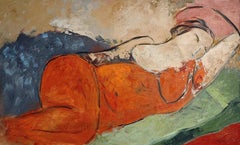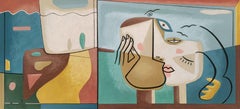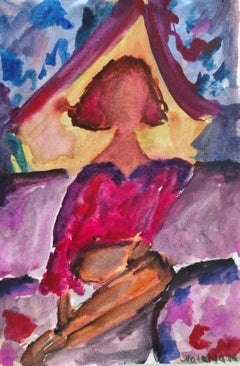Items Similar to The Dreaming Girl
Want more images or videos?
Request additional images or videos from the seller
1 of 8
Tibor JankayThe Dreaming Girl
$9,500
£7,165.57
€8,266.51
CA$13,409.51
A$14,930.66
CHF 7,769.63
MX$180,210.26
NOK 97,438.28
SEK 92,036.59
DKK 61,715.61
About the Item
Signed upper left.
TIBOR JANKAY (1899-1994), as he used to mention so many times, felt special and deep leaning towards his hometown of Békéscsaba, Hungary. Following several international successes, he always returned to his beloved people and landscapes of the Great Plain and friends. After nearly a five-decade-long emigration he still thought that only Békéscsaba alone could be worthy to succeed his art and inheritance. Following the first visit home in 1969, he returned to Békéscsaba several times, and as it can be seen from his writings and notes, his old plan was to bequeath everything to his hometown. This inheritance arrived at Békéscsaba in 1997 by his testament, and a significant part of it can be seen by the public of town within the frame of a new and permanent exhibition.
In the autumn of 1918 Tibor Jankay started his art studies at the Fine Art Academy in Budapest. Among his teachers he had the most delightful reminiscence of Pál Szinyei Merse and János Vaszary. He frequently exhibited his works from the early 1920s first in Békéscsaba, Gyula and Orosháza, and later at Ernst Museum where the works of Fine Artists' New Club were also on display and he showed his works abroad too. Critics appreciated the accurate composition skills already, in his early works and also that he created order and tension in his pictures by using only a few figures and motives.
The determinant feature of Jankay's graphics and paintings is the people next to him, humble people and poor gypsies living in small farms around Bekes and the busy inhabitants of Békéscsaba appear in these pictures. Before he had finally emigrated from Hungary, he visited the United States twice. His older brother, who was a doctor and later his mother also lived there, therefore this country meant a more secure life for him than for hundred thousands who had emigrated in those days. Beginning from October in 1929 and later from the autumn of 1934, both times he spent about a year each in the United States. He lived in Ohio at the first time, five years later he went to Los Angeles. By that later time he had a car by which he wandered the hot and wild regions of California. Both visits brought him significant pecuniary and professional successes; he won prizes, his pictures were shown in great museums, and some were sold.
After all Jankay still longed for home. During World War II, he was sent to a labour battalion, but even these years could not extinguish the love of his country. He worked up his moving war adventures in a charcoal drawing series the Martyrs issued in 1947 by Tevan Publishing Company. Perhaps the love of his mother could be the only one to be stronger than patriotism, and in 1948 he finally decided to follow his mother and his siblings, and he moved to California.
In 1949 he began teaching drawing, painting and modeling, and he also gave art courses at American universities. His activity was acknowledged and appreciated by his colleagues and students. In teaching Jankay discovered a new meaning of life, insomuch that when he was near ninety years old he did not paint, he talked and philosophized only. His young students and friends in their twenties respected and loved him as their father and master, and there were some who even felt in love with this jolly and clear-hearted old man. It is interesting that American motives left little marks in Tibor Jankay's painting. In his early years of work, even during his emigration he repainted his Hungarian experiences and memories again and again, some motives were used several times in many variations.
The effects of America can be seen most in the unexampled evolution of Jankay's poesy, the fascinating enrichment of experimenting (he made ceramics, stone and glass mosaics, sculptures and relives from the most unusual materials like screws, wire and nails) and in his philosophy that the most important thing in life is to establish clear human relations and attachments. This simplicity and clearness is radiating from in Jankay's late paintings. One of the most significant pieces of them is The Spirit of Venice representing a boy with guitar made in 1989. This picture was the poster and emblem of Venice Festival in 1992 and was printed on T-shirts and record covers. This compact record contains the own performances of musicians from Venice Beach. They were all Jankay's friend and many of them still play music in the busy parades of the beach; in the evening they stop and as if it would be a wonderful phenomenon they stare at the boy-like, slightly melancholic sunset of beaches, coasts, drives and boulevards from day to day. This is the world of Jankay's last years: the resigned but un-destroyably vital world of free wanderers, musicians and artist.
And in Jankay's painting this was the world of clear colours, transparent and clear forms, relaxing and closed compositions. As he said in one of his last interviews, when he looked at the ocean he felt the width, spaciousness and infinity of the Great Plain and it is certain that every night during the nightfall he thought of his homeland. "I have been living in America for a very long time. In my thoughts and dreamworld I spend more time in Békéscsaba than at any other place of the world. Békéscsaba was the place, where my feelings were born, I found there, beauty, good and delight. " he said in 1983. Living at the coast he still reserved and redefined the picture of the plain and he also preserved the vitality of his youth which he could adjust to the ideals of American life only in his old ages, living lonely and unbound with family ties. That is how he remained a Hungarian painter, a painter from the Great Plains there and abroad, and that is how he became a hundred per cent American painter as well. Credit: askart
- Creator:Tibor Jankay (1899 - 1944, Hungarian)
- Dimensions:Height: 24 in (60.96 cm)Width: 36 in (91.44 cm)Depth: 3 in (7.62 cm)
- Medium:
- Movement & Style:
- Period:
- Condition:
- Gallery Location:Saratoga Springs, NY
- Reference Number:1stDibs: LU17029801422
About the Seller
4.2
Vetted Professional Seller
Every seller passes strict standards for authenticity and reliability
Established in 1992
1stDibs seller since 2015
30 sales on 1stDibs
Typical response time: 17 hours
- ShippingRetrieving quote...Shipping from: Saratoga Springs, NY
- Return Policy
Authenticity Guarantee
In the unlikely event there’s an issue with an item’s authenticity, contact us within 1 year for a full refund. DetailsMoney-Back Guarantee
If your item is not as described, is damaged in transit, or does not arrive, contact us within 7 days for a full refund. Details24-Hour Cancellation
You have a 24-hour grace period in which to reconsider your purchase, with no questions asked.Vetted Professional Sellers
Our world-class sellers must adhere to strict standards for service and quality, maintaining the integrity of our listings.Price-Match Guarantee
If you find that a seller listed the same item for a lower price elsewhere, we’ll match it.Trusted Global Delivery
Our best-in-class carrier network provides specialized shipping options worldwide, including custom delivery.More From This Seller
View AllThe Fern
By Agnes Hart
Located in Saratoga Springs, NY
Signed lower right
Agnes Hart was born in Meridan, Connecticut. She studied at the Ringling School of Art in Sarasota, Florida; at Iowa State University with Josef Presser, Paul Burlin and Lucile...
Category
1940s Abstract Expressionist Abstract Paintings
Materials
Canvas, Oil
$4,750
Refusal of the Brass Ring
By Helen Cartmell
Located in Saratoga Springs, NY
Helen Cartmell (American, 1923 -2015 )
“Refusal of the Brass Ring”
1989
Signed and titled in pencil on stretcher, with name tag showing the title and dat...
Category
1980s Abstract Abstract Paintings
Materials
Canvas, Oil
Abstract and Drip
By Rolph Scarlett
Located in Saratoga Springs, NY
Signed lower right.
Description
An example of Scarlett’s abstract drip painting, this untitled work has linear and geometric elements rendered in shades of black, rose, and blue and...
Category
1950s Abstract Expressionist Abstract Paintings
Materials
Canvas, Oil
Abstract and Fractured, Biomorphic and Geometric Forms
By Agnes Hart
Located in Saratoga Springs, NY
Signed lower left.
“Abstract and Fractured Biomorphic and Geometric Forms” which was painted in the mid to late 1950’s is a nod to Picasso’s famous painting Guernica, which Hart may have seen when it was given to the Museum of Modern Art in New York in 1958. Several elements in the painting clearly reference Guernica: the black geometric and cut-out shapes, the biomorphic shapes, the abstracted horse’s head and body, with a district reference to the bull’s tail, along with the black and white pallet choice and various details throughout-all hallmarks of Picasso’s Guernica. The abstracted reality Hart presents in these references go beyond a simple nod and reflect a personal interpretation reflected in the splintered abstraction and her bespoke interpretation.
Agnes Hart’s first began her career as a social realist artist in the 1930’s. She was also WPA artist. Her longtime friend Milton Avery encouraged her, and she exhibited in the same gallery in the late 1940’s, the RoKo Gallery. Her instinctive and personalized modernist periods often reflected a similar path of her compatriot artists during the first half of the 20th century. Her early works were influenced by her teachers Josef Presser, Paul Burlin and Lucile Blanch, and Reginald Neal, and reflected historical modern trends-at times showing the influence of Avery and other modernist. Like Elaine DeKooning, Lee Kraser, Michael Corrine West...
Category
1950s Abstract Expressionist Abstract Paintings
Materials
Canvas, Oil
New Year
By Enrico Donati
Located in Saratoga Springs, NY
Signed & dated verso, 1992
Enrico Donati, a surrealist and abstract expressionist painter, was born in Milan, Italy in 1909 and died in Manhattan on April 25, 2008. He was known for his association with the surrealist movement of the 1940's, but his artwork continued to transform itself through the many trends that have occurred during his long career. In Italy he attended the Universita degli Studi in Pavia where he studied economics. In 1934, he moved to the United States settling in New York where he studied at the New School for Social Research and the Art Students' League.
Considered the surviving dean of the Surrealist Movement and a member of the New York School, Donati painted with Ernst, Matta and Tanguy in the thirties and forties, and in particular with Andre Breton, regarded by many to be the grand master of Surrealism.
He helped organize the Exposition Internationale du Surrealisme in Paris in 1947 where he exhibited three of his pieces. The Surrealists were known to avoid presenting or representing reality, and put the emphasis on invention and creativity by uncovering the poetic aspect of life with its kaleidoscopic multidimensional images, using reality only to enhance imagination.
Donati survived the decline of Surrealism in the late 1940's by adapting his style to current art trends as he worked with new materials and textures throughout the 1950's.
One trend with which he became involved was Abstract Expressionism, which originated in the 1940s, and became popular in the 1950s. It was a movement in which artists typically applied paint, rapidly and with force, to large canvases, in an effort to show feelings and emotions. Paint might be applied with large brushes, sometimes dripping or even throwing it onto canvas. Abstract Expressionist work is characterized by a strong dependence on what appears to be accident and chance, although it is actually highly planned.
Donati held a retrospective at the Palais des Beaux-Arts in Brussels in 1961 and went on to exhibit at the Betty Parsons Gallery with other forerunners of American Abstract Expressionism: Mark Rothko, Barnett Newman, and Jackson Pollock. It was at this time that Donati created some of his most inventive and extraordinary work, some of which was featured in a survey exhibition at the Alter & Gil Gallery, Beverly Hills, California, in January 2000.
He has held many teaching positions and has been an active lecturer, while continuing to add to his artistic repertoire. From 1960 to 1962 he was a Visiting Lecturer at Yale University, and from 1962 to 1972 a Member of the Yale University Council for the Arts and Architecture.
He has had seventy-five one-man shows, among them an exhibit of new paintings at the Maxwell Davidson Gallery (57th St., New York) in the fall of 1997. Donati's work is held in collections throughout the world, and his work has appeared in over 300 articles and publications, two hard cover books...
Category
1990s Abstract Abstract Paintings
Materials
Cotton Canvas, Mixed Media
$25,000
Abstract
By Rolph Scarlett
Located in Saratoga Springs, NY
Signed lower right and a double sided painting.
Category
Mid-20th Century Abstract Expressionist Abstract Paintings
Materials
Oil, Board
$35,000
You May Also Like
Dreaming in Color, Expressionist Reclining Female Figure
Located in Soquel, CA
A vivid, multicolored expressionist depiction of a gracefully reclining female figure by Bay Area artist Rick Rodrigues (American, 20th Century). Signed with the artist's symbol lowe...
Category
1980s Expressionist Figurative Paintings
Materials
Canvas, Oil
$2,280 Sale Price
20% Off
Large Figurative Painting of Reclining Woman – Modern Oil art in Earthy Tones
By SOPHIE DUMONT
Located in LANGRUNE-SUR-MER, FR
Sophie Dumont – “Allégresse”
Oil on canvas – 35.43 x 59.84 in (90 x 152 cm)
Unframed
Year: 2018
Certificate of authenticity included
"Allégresse", meaning "Joy" in French, is an exp...
Category
21st Century and Contemporary Fauvist Figurative Paintings
Materials
Oil
My soul mate, Painting, Acrylic on Canvas
By Bernard Simunovic
Located in Yardley, PA
My soul mate Bernard Simunovic, Germany, 2022 Acrylic on Canvas, 70x155cm :: Painting :: Contemporary :: This piece comes with an official certificate of authenticity signed by the...
Category
2010s Contemporary Paintings
Materials
Acrylic
Contemporary abstract expressionist painting woman "To dream or not to dream"
Located in VÉNISSIEUX, FR
This contemporary abstract expressionist painting with a touch of impressionism, created by French artist Natalya Mougenot, is titled "To Dream or Not to Dream". It stands as a strik...
Category
2010s Abstract Expressionist Figurative Paintings
Materials
Paper, Watercolor
Natalya Mougenot Contemporary abstract expressionist painting woman "To dream or not to dream", 2024
$150 Sale Price
64% Off
Free Shipping
Contemporary expressive abstract figurative acrylic painting of woman on canvas
Located in VÉNISSIEUX, FR
"Integrity" is a contemporary, expressive figurative oil painting by French artist Natalya Mougenot, marking a transformative chapter in her artistic journey. As part of her evolving...
Category
2010s Abstract Impressionist Figurative Paintings
Materials
Canvas, Acrylic
Contemporary figurative abstract expressive oil painting of woman on canvas
Located in VÉNISSIEUX, FR
This contemporary, expressive figurative oil painting titled No Limits was created by French artist Natalya Mougenot and marks a significant shift in her artistic journey. Part of he...
Category
2010s Abstract Expressionist Figurative Paintings
Materials
Canvas, Oil, Oil Pastel, Acrylic
$795 Sale Price
30% Off
Free Shipping
More Ways To Browse
Hungary Poster
Antique Hungarian Painting
New Order Poster
Cars And Girls
Sculpture Guitar
Antique Gypsy
Glass Guitar
Farm Posters
1920s Compact
Antique Farm Prints
One Cent Life
Girl And Boy Sculpture
Antique Picture Frames 1920s
Beach Boy Oil Painting
Still Life With Guitar
1920s Farm Painting
Antique Guitar
Antique Guitars

